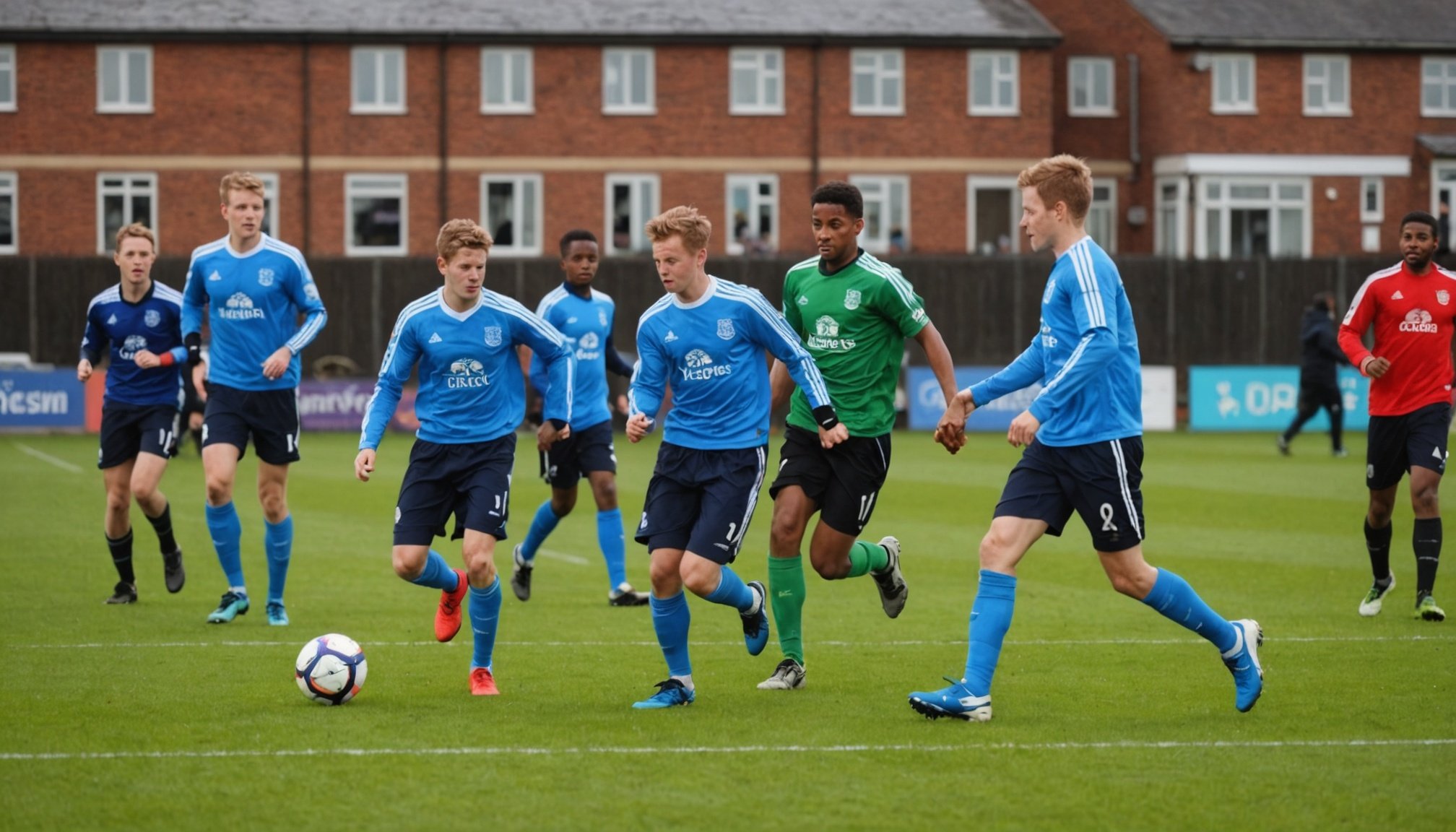Defining Grassroots Development in UK Sports
Grassroots sports development refers to the foundation of the UK sports ecosystem, where the primary focus lies in encouraging widespread sports participation at the community level. It encompasses initiatives designed to engage people of all ages and backgrounds in sports activities, often organized through local clubs, schools, and recreational centers. This approach ensures that sports are accessible and inclusive, promoting physical health and social cohesion.
At its core, grassroots sports development aims to build a durable pipeline of participants and enthusiasts who may progress to higher competitive levels or simply enjoy ongoing active lifestyles. It is not merely about elite performance but about fostering enjoyment, well-being, and community spirit.
In the same genre : Will Local Talent From the UK Revolutionize Global Sports?
Community-based programs play a crucial role in this framework. They provide structured opportunities for individuals to engage regularly in sports, offering coaching, facilities, and events tailored to local needs. By rooting sports in neighborhoods and social groups, these programs create environments where participation becomes a habit, helping tackle issues such as inactivity and social isolation. This localized engagement is essential for sustainably growing sports participation across the UK, making grassroots development the backbone of the entire sports ecosystem.
The Role of Grassroots Initiatives in Talent Identification and Pipeline Building
Grassroots initiatives lay the foundation for effective talent development, especially within youth sports. These programs provide accessible sporting pathways that allow young athletes to explore, refine, and demonstrate their potential in a supportive environment. By fostering participation from the ground up, grassroots efforts serve as critical touchpoints in detecting promising talent early.
Also to see : Exploration of British Sports News: What Are the Lesser-Known Sporting Events in the UK?
Such initiatives are not merely recreational; they are pivotal in shaping the future of elite sports. For instance, numerous professional athletes have traced their beginnings to local clubs and community-based schemes, highlighting the success of grassroots to elite progression. These pathways offer structured opportunities for continuous skill enhancement, ensuring that talent is systematically nurtured and less likely to be overlooked.
Moreover, grassroots programs promote inclusivity and diversity, broadening the talent pool and enriching competition. By embedding talent development in local contexts, these initiatives enable a smoother transition through various performance tiers, from casual participation to specialized training. This comprehensive approach addresses potential gaps in national talent pipelines and supports sustainable athlete growth.
In essence, grassroots setups form the backbone of sporting pathways, making them indispensable in the journey from discovery to elite status. Their role in identification and pipeline building is fundamental to cultivating tomorrow’s champions.
Promoting Inclusivity and Community through Grassroots Sports
Grassroots sports play a crucial role in broadening access to sports for underrepresented groups across the UK. Various initiatives actively work to remove barriers related to gender, ethnicity, disability, and socioeconomic status. By focusing on inclusivity, these programs ensure that more individuals have the opportunity to engage in physical activity, regardless of their background.
The impact of prioritizing diversity in UK sports is profound, as it fosters a sense of belonging and equality within communities. Grassroots sports initiatives often provide safe, welcoming environments where people of different ages and abilities can connect. This approach not only encourages participation but also actively combats social isolation by bringing together diverse groups.
Furthermore, community cohesion and social well-being significantly improve when grassroots programs promote inclusivity. By creating spaces where interaction and teamwork flourish, these sports facilitate mutual understanding and respect. The social benefits include stronger local networks and enhanced mental health, reinforcing the value of inclusive sports beyond physical fitness.
Expanding access to sports through grassroots efforts empowers communities and cultivates social solidarity, making diversity not just a goal but a lived reality throughout UK sports.
Grassroots Impact on National Sporting Success and Performance
Small-scale community sports activities are crucial to the improvement and success of UK national sports teams. Grassroots involvement forms the foundation for identifying and nurturing talent, which feeds directly into high-performance programs.
Studies reveal a clear correlation between grassroots activity and performance improvement at the national level. For example, regions with higher participation rates in youth sports tend to produce athletes who excel on international stages. Experts assert that consistent training, competition, and support at the grassroots level create a pipeline of skilled athletes ready for national duties.
A key factor is the accessibility of sports facilities and coaching to all communities. This inclusivity boosts participation, which in turn enhances the pool of potential talent. It is not just quantity but the quality of grassroots programs that matters; structured development pathways contribute to long-term sporting success.
Furthermore, statistical evidence supports that investment in grassroots initiatives leads to measurable improvements in performance metrics for UK national teams. This underscores the importance of sustained funding and strategic planning at the community level to ensure ongoing excellence in sport on larger stages.
Policy Support, Challenges, and Future Trends in UK Grassroots Development
Policies at the government and organisational levels play a crucial role in shaping sports policy to support grassroots sports. These policies often focus on increasing accessibility, promoting inclusivity, and enhancing community engagement. A key aspect is dedicating funding to grassroots sports, which helps improve facilities, coaching, and local club resources.
Despite this, challenges remain. Funding grassroots sports consistently ranks among the most pressing issues, with limited budgets unable to meet demand for infrastructure upgrades and program sustainability. Another critical challenge is maintaining long-term interest and participation, which requires adaptable strategies and effective community outreach.
Looking ahead, the future of UK sports is poised for significant transformation. Emerging trends emphasize digital innovation, such as virtual coaching and performance tracking, which can enhance grassroots development. Additionally, evolving sports policy increasingly advocates for collaboration between public, private, and community stakeholders to create sustainable models. Focus on inclusivity and mental health also shapes future strategies, ensuring sports remain a catalyst for wide-ranging social benefits.
Ultimately, these developments signify a shift toward more integrated, well-resourced grassroots sports environments, underpinning the continued growth and success of UK sports from the ground up.


